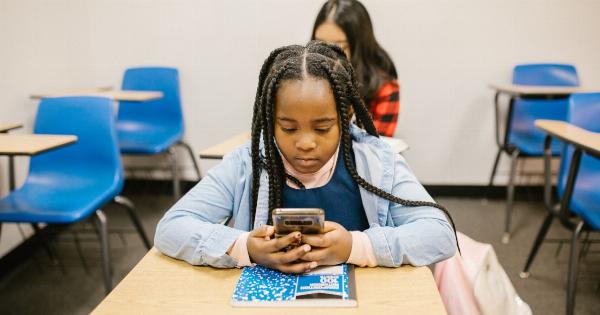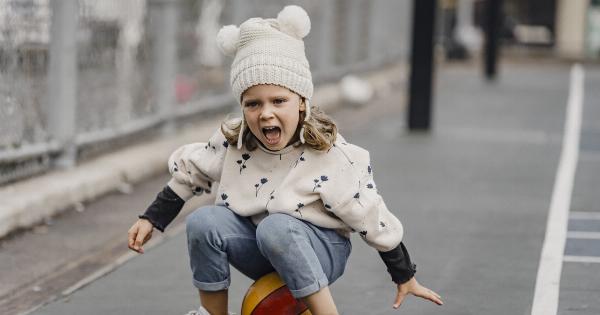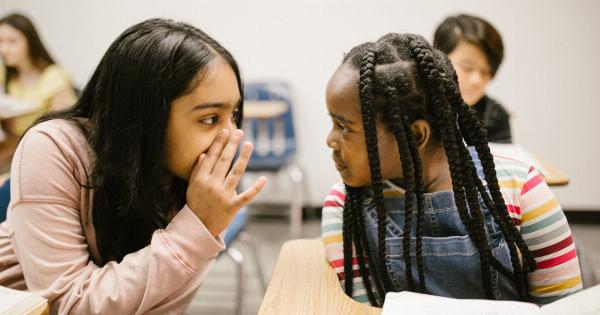Bullying is a social problem that affects not only the individuals involved but the community as a whole. Although various measures have been put in place to prevent bullying in schools, it remains prevalent, and its effects can be far-reaching.
Schools are expected to provide a safe and conducive environment for learning, and bullying undermines this objective. In this article, we will explore the insights from an educational psychologist on tackling school bullying.
Understanding bullying
Bullying is a form of aggressive behavior that is intentional, repeated, and involves an imbalance of power between the victim and the bully. It can take various forms such as physical, verbal, or online.
Bullying can have negative consequences for both the victim and the bully, such as depression, anxiety, low self-esteem, and behavioral problems. Educational psychologists agree that bullying is a complex issue that requires a multifaceted approach to prevent and address it.
The role of the school in preventing bullying
The school plays a critical role in preventing and addressing bullying. Schools are expected to provide a safe and secure environment for all students. As such, they must have policies and procedures in place to prevent and address bullying.
These policies must be communicated effectively to all stakeholders, including students, teachers, and parents. Educational psychologists recommend that schools should adopt evidence-based strategies to prevent bullying, such as promoting positive behaviors, fostering a positive school climate, and involving the whole school community.
Promoting positive behaviors
One of the effective strategies for preventing bullying is promoting positive behaviors. This involves teaching students positive behaviors such as empathy, respect, kindness, and responsibility.
By promoting positive behaviors, students learn to appreciate and value diversity, and this reduces the likelihood of bullying. Educational psychologists recommend that schools should develop and implement programs that promote positive behaviors, such as peer mentoring and conflict resolution.
Fostering a positive school climate
The school climate refers to the social and emotional environment of the school. Schools that have a positive school climate are less likely to have bullying incidents.
Educational psychologists recommend that schools should foster a positive school climate by promoting positive teacher-student relationships, creating a sense of belonging for every student, and involving parents in school activities. A positive school climate creates a sense of safety and security for all students, and this reduces the likelihood of bullying.
Involving the whole school community
To prevent and address bullying, the school must involve the whole school community. This includes teachers, parents, and students.
Educational psychologists recommend that schools should involve teachers in professional development programs that focus on bullying prevention and response. Schools should also engage parents in school activities and encourage them to communicate regularly with teachers about issues related to their children.
By involving the whole school community, the school can create a supportive and collaborative environment that promotes positive behaviors and reduces the likelihood of bullying incidents.
Addressing bullying incidents
Despite the preventive measures put in place, bullying incidents may still occur in schools. When a bullying incident occurs, the school must respond promptly and effectively.
Educational psychologists recommend that schools should have clear procedures for reporting and responding to bullying incidents. The procedures should be communicated effectively to all stakeholders, and they should include measures for investigating and addressing the incidents. Schools should also provide support to the victim and the bully.
Support may include counseling, therapy, or mediation.
The role of educational psychologists in tackling bullying
Educational psychologists play a vital role in tackling bullying in schools. They provide expertise and support to teachers, parents, and students in preventing and addressing bullying.
Educational psychologists work with schools to develop evidence-based strategies for preventing bullying and creating a positive school climate. They also provide consultation and counseling services to students who have been bullied or have engaged in bullying behaviors.
Educational psychologists collaborate with other professionals, such as social workers and counselors, to provide comprehensive support to victims and bullies.
Conclusion
School bullying is a complex issue that requires a multifaceted approach to prevent and address it. The school plays a critical role in preventing and addressing bullying, and it must have evidence-based strategies in place to do so.
Promoting positive behaviors, fostering a positive school climate, and involving the whole school community are effective strategies for preventing bullying. When a bullying incident occurs, the school must respond promptly and effectively by providing support to the victim and the bully.
Educational psychologists play a vital role in tackling bullying in schools by providing expertise and support to teachers, parents, and students.

















